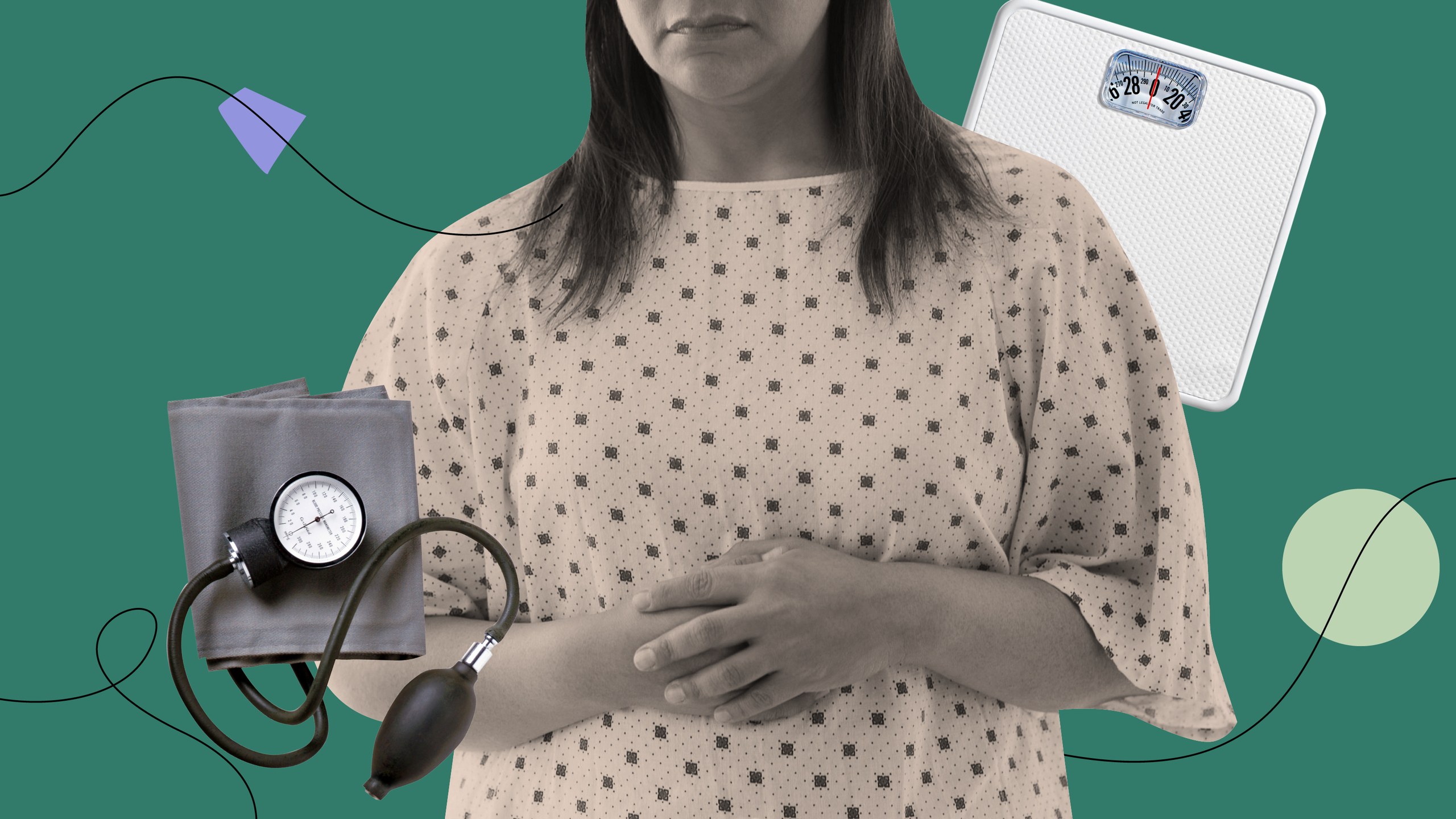Weight Stigma Is Real—It Almost Caused Doctors to Miss My Cancer

My five-month-old baby girl was shrieking into my left ear when the oncologist sat down. Our friends had come with me to watch her in the lobby during my appointment, but she was having none of it. So we all piled into the exam room and heard him say the words: “You have bone marrow cancer.”
Everyone was staring at me. The baby was screaming hysterically. All I could think was, Let’s get on with it; this kid needs a bottle.
The first trimester of my pregnancy had been pretty uneventful, but during my second trimester, my blood pressure started creeping up. On a visit to the hospital to have it monitored, doctors found elevated levels of protein in my urine—often a sign of preeclampsia. But something didn’t quite add up. My high-risk OB told me she didn’t like how much protein they’d found. She wanted me on bedrest at home for the duration of the pregnancy. No going to work, no major chores, and constant monitoring. Ideally, she said, the protein in my urine would go away within a few days of having the baby, which is how preeclampsia usually resolves itself, but we had to make sure. She recommended I visit a kidney specialist as soon as my pregnancy was over.
On bedrest, I did a lot of puzzles and pretended I was going to knit a blanket. I was induced at 37 weeks (i.e., eight and a half months), and the baby arrived, no problem. She was tiny, strong, and stunning. We named her Rose. A few days later, the high-risk OB called to remind me to follow up with a kidney doctor. “To check on that protein,” she said.
We were getting used to a new normal at home. The dog was licking Rose nonstop, I was regularly peeing my pants before I could make it to the bathroom, and nobody was sleeping. At some point amidst the chaos, I logged onto my insurance website and found a kidney doctor who was covered by my plan. After lab work, I sat down with my doctor to go over my test results. The protein was still there.
We sat for a moment. “Can you start dieting and exercising?” she asked. “Try to lose some weight.”
Huh? I’d been through dozens of medical appointments throughout nine months of pregnancy, and no one had mentioned my weight. But I didn’t want to argue with her—she was the expert. “Okay, yeah. I can do that,” I said.
“Take the baby out for walks, eat less salt, nothing from a box, eat plants,” she instructed. She didn’t have to explain it to me. As a 38-year-old woman, I was painfully well-versed in how to lose weight. From the media to my own family, the world constantly encouraged me to stay obsessed with my size, and like literally every other American woman I knew, I’d spent a lifetime consumed by how I looked, and haunted by the number on the scale. It was inescapable.
I didn’t want to sound defensive, so I didn’t tell her that I already knew all about weight loss, or that I’d lost 115 pounds with diet and exercise at an earlier time in my life when my body image had been an emotional burden for me. I didn’t tell her that I lost that weight for vanity and to please my family, not for health reasons. I didn’t tell her my weight had never actually been a health issue for me, because I didn’t think she’d believe me. And I didn’t tell her that the idea of losing weight to fix this current problem sounded like a bunch of bullshit.
I didn’t tell her any of that because that’s not the kind of thing a doctor prescribing weight loss wants to hear. So I just played along. “And if I lose weight, the protein will go away?” I asked. “Yes. Lose weight, the protein will go away. Come back four months from now.”
